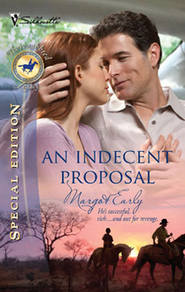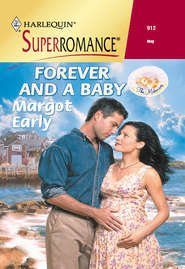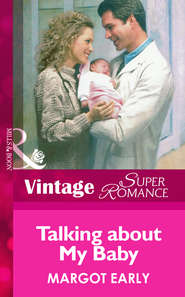По всем вопросам обращайтесь на: info@litportal.ru
(©) 2003-2024.
✖
The Things We Do For Love
Автор
Год написания книги
2018
Настройки чтения
Размер шрифта
Высота строк
Поля
Two other neighbors, attracted by the sound of the shotgun, came over to see what was going on. One told Graham a story about a child carrying baby copperheads in a jar, thinking they were worms, holding his hand over the top of the jar, being bitten repeatedly and then dying from the venom. Subsequently, according to the neighbor, a policeman put the jar of copperheads in the trunk of his car, which then had to be impounded and fumigated to kill the reptiles. David Cureux challenged this story as nonsense, but for weeks Graham dreamed of finding snakes in his automobile, in his bed, in his bathtub, in his basement—virtually everywhere. The woman who recorded the astrology show at the radio station told him that dreams about snakes reflected the evolutionary ability to change, the urge to survive and how he dealt with the impulses of the most ancient part of his brain.
Jonathan Hale had argued that snakes in dreams were definitely about sex.
The astrologer had retorted, “Isn’t that what I said?”
Graham thought the dreams were about the basic terror of sitting down on the porch swing and discovering a black serpent of notoriously aggressive nature coiled beside his feet.
Hale. What had the station manager been doing getting touchy-feely with Mary Anne tonight? Wasn’t the man supposed to be celebrating his engagement?
Graham needed to stop thinking about the woman. What was this sudden obsession with her? He’d always found her attractive, yes, and he took great pleasure in baiting her, simply because of her worship of Jonathan Hale and her awe of his experiences in Rwanda and Afghanistan. But Graham wasn’t sure he wanted a relationship, and in any case Mary Anne had made it clear she wanted nothing to do with him.
Until the strange business of her trying to set him up with Cameron.
Cameron. Cameron did nothing for Graham. She was pretty, if you liked the type. But he thought she was hard, as well. It was her cousin who interested him.
Strange. She’d annoyed him at their very first meeting five years earlier. The former station manager had introduced him to Mary Anne as “a psychologist who hosts a talk show dealing with relationship problems.” It hadn’t been as slickly phrased as Jonathan Hale would have put it…and did express it after he replaced the former manager. But essentially it had been accurate.
The new kid on the block, fresh from her New York job covering Milan fashion shows or whatever the hell it was she had done, had said, “No doubt calling up a wealth of life experience. It’s a pleasure to meet you, Graham. I’ve heard your show.”
Innocuous enough.
But what had she meant about life experience? Puzzled, he’d stopped her at the water cooler a few minutes later and asked her what she meant.
Then, she’d dissembled. She’d shrugged and said, “I mean, we all work with what we’ve experienced. That’s all I meant.” And she’d turned away fast. Escaping.
She’d been nasty, and when challenged she’d denied having said anything offensive. Nor was the undercurrent of her words imaginary. Because a week later, she had introduced him to another woman as “the bachelor guru of female satisfaction.”
The bachelor guru.
Which was inaccurate and incomplete.
Graham Corbett was a widower.
THE PHONE AWOKE Mary Anne the next morning. She saw the numbers on her alarm clock—nine-thirty—and snatched the receiver from its cradle. How had she slept so long? “Hello?”
“Mary Anne? It’s Jonathan.”
Her heart pounded. “Oh, hi,” she said, squinting against the autumn’s morning light.
“I just wanted to see how you are this morning. Did you get home okay?”
“Oh. Of course. Thank you. It’s really nice of you to check. I was fine. I am fine,” she corrected.
“Good,” he said. “Good.”
He sounded as nervous as Mary Anne felt.
He said, “There’s something I want to ask you. I ran it by Graham last night, and he was game.”
Dark presentiment hovered.
“I heard what you said about him offering a one-sided view on relationships. So I suggested that you be his guest for a four-week segment on dating. If it works out, we could have you there regularly as a guest.”
Mary Anne blinked. Be on Graham Corbett’s hideous, tacky talk show?
But it was exposure. It was something else for her resumе. She wouldn’t become a celebrity. It wasn’t any different, really, from her radio essays.
But it wasn’t as anonymous as journalism. In journalism there was a dignity lacking in—well…She separated herself mentally from her father’s public and private personas, which were essentially the same. She would never become like him.
“I’m hardly qualified,” she said.
“You’re an attractive woman. You date, right?” Jonathan asked.
You’re an attractive woman. If only it didn’t feel so much as if he was damning her with faint praise. “I date,” she confirmed. Occasionally. Almost never lately, because there was no one she wanted to date.
“You can do it,” Jonathan said. “You’ll give great advice.”
Like how to steal someone’s fiancе with a love potion? The thought of what she’d done the night before was mortifying. In a way, she supposed, it was better that Graham had drunk it. It wasn’t going to work, and this way it was as if she hadn’t actually tried to spike Jonathan’s drink.
Mary Anne said, “I’d like to…think about it.”
“Well, I plan to be at the studio most of the day doing paperwork,” he said. “Come by if you want to talk about it—or just hang out.”
Mary Anne widened her eyes. It was nothing. He was just being a friend. “I…might,” she said.
“Great. I’ll look for you. We’ll go have coffee.”
“I said I might,” she clarified.
“Then, I’ll hope,” he replied.
She hung up the phone, squinting, heart beating hard, playing the conversation through her mind. Come by if you want to talk about it—or just hang out.
Did it mean anything? Was he finally interested in her?
Interested or not, he was engaged to another woman.
And he hadn’t called her on the phone to say that relationship was broken because he’d suddenly realized he didn’t want to marry Angie Workman. Instead, he’d called her and told her he’d be spending the day at the studio. Sunday, when the studio was usually quiet, the station running prerecorded programs.
No, she was being silly. People popped in and out on Sundays.
What if she made an excuse to go down to the station? Was that what he hoped would happen? She couldn’t decide whether that was good or bad.
She called Cameron.
“GRAHAM DRANK the love potion.”
Cameron’s heart sank. It wasn’t that she believed the love potion would work. All the same, Graham Corbett’s drinking it seemed a sign—a sign that he and Mary Anne were going to end up together.











